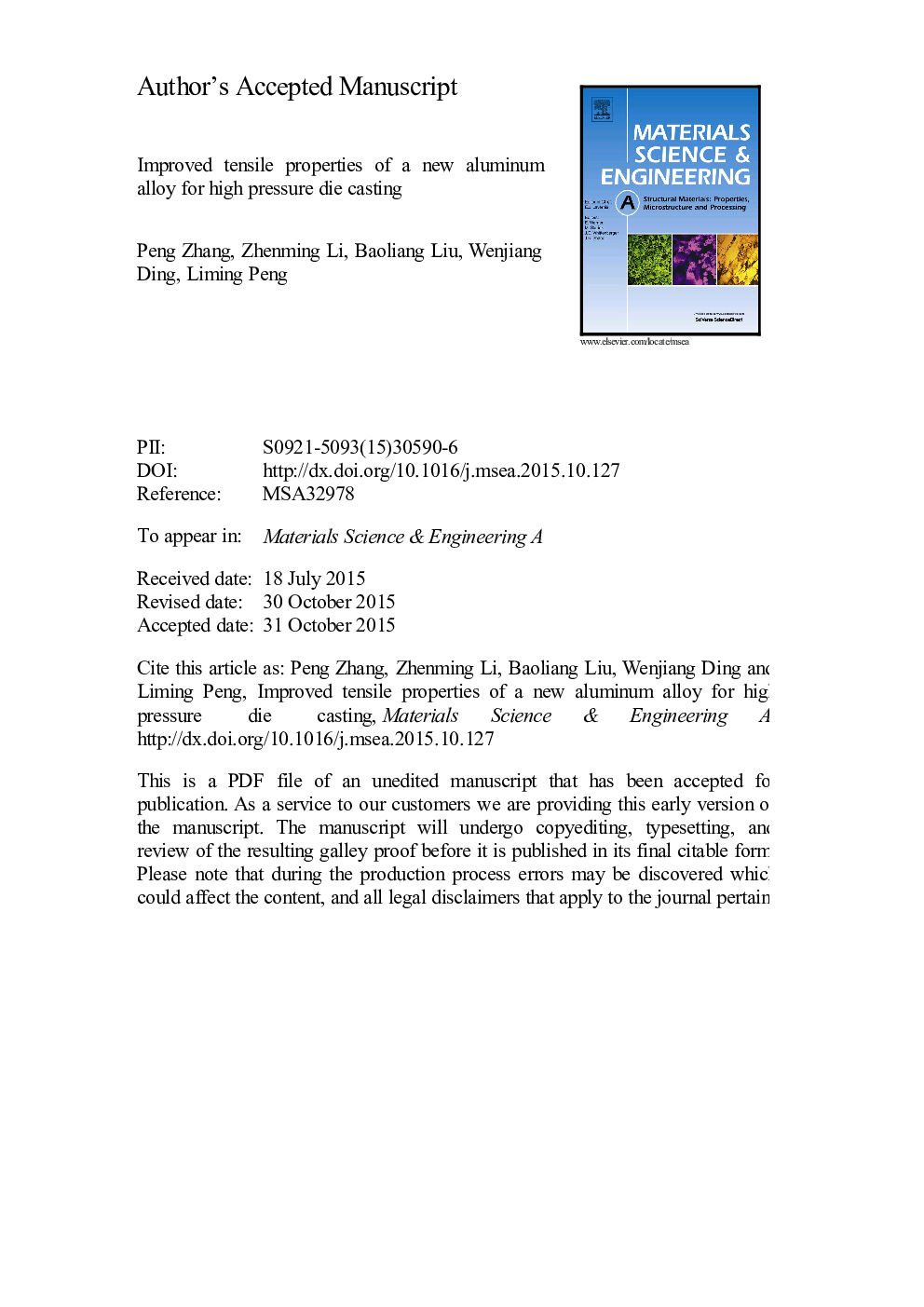| Article ID | Journal | Published Year | Pages | File Type |
|---|---|---|---|---|
| 7976007 | Materials Science and Engineering: A | 2016 | 34 Pages |
Abstract
This paper investigates the effects of strain rate and test temperature on the tensile properties and deformation behavior of a recently developed high-ductility cast aluminum alloy Al-5Mg-0.6Mn. The as-cast alloy tested at room temperature and the lowest strain rate of ~1.67Ã10â4Â sâ1 shows the highest yield strength of ~212Â MPa, ultimate tensile strength of ~357Â MPa and elongation (~17.6%). Increasing strain rate reduces the ultimate tensile strength and ductility of the as-cast alloy. With the increasing of test temperature, the as-cast alloy shows significantly decreases in tensile strengths and improvements in elongation. The tensile failure of the alloy is mainly originated from the cracking and debonding eutectic particles. The Portevin-Le Chatelier effect occurs in the alloy tested at RT. Strain rate in current study ranges does not significantly affect the work-hardening behavior of the alloy. Increasing test temperature apparently reduces the strain-hardening exponent and coefficient. For the alloy tested at RT, all tensile failures occur prior to global instability, indicating the existence of localized damage. In contrast, for the alloy tested at HT, the global instability occurs at strains below the logarithmic fracture strains, suggesting that there is still a postnecking damage.
Related Topics
Physical Sciences and Engineering
Materials Science
Materials Science (General)
Authors
Peng Zhang, Zhenming Li, Baoliang Liu, Wenjiang Ding, Liming Peng,
